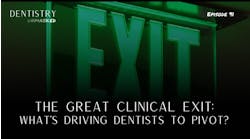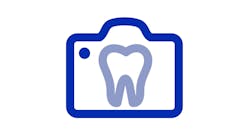The Federal No Surprises Act (NSA) was signed into law on December 27, 2020. Its intent is to curb surprise medical billing to patients by out-of-network facilities and providers, specifically with respect to emergency medical care and nonemergency care administered at health-care facilities such as hospitals and ambulatory surgery centers.
Surprise billing is also referred to as balance billing. This is charging a patient, often without advance notice, for the difference between the medical services charges and the amount the patient’s insurance plan will pay the out-of-network provider. The NSA seeks to prevent this billing practice because the balance billing by out-of-network providers to unaware patients is often much more than the copays and deductibles patients pay for medical services from in-network facilities or providers.
The effect of the No Surprises Act
Under the NSA, balance billing patients for emergency care is prohibited for out-of-network facilities and providers. For certain nonemergency services from out-of-network health-care providers, the NSA still allows for balance billing, provided the patient is given advance notice and consents.
For nonemergency services, the patient must be given advanced written or electronic notice that the provider or facility is out-of-network. They must be advised of the estimated cost, and whether the facility has an in-network provider who can perform the service.
Limited applicability to general and specialty dentists for insured patients
The NSA has a limited effect on general and specialty dentists for patients with dental insurance. While the NSA is applicable to most group health benefits plans, it explicitly excludes limited-scope dental insurance plans, which need not comply with the NSA as excepted benefits plans.
An excepted, limited-scope dental insurance plan is a separate policy, certificate, or contract of insurance that is otherwise not an integral part of a group health plan. A benefits plan is not an integral part of a group health plan when participants have the right to opt out of coverage, or if claims are administered under a separate contract from other benefits administration. To qualify as a nonintegrated, excepted benefit plan, participants are not required to pay a separate premium or contribution for the excepted coverage.
With the exception of some Medicaid plans, all dental insurance falls within the definition of limited scope dental plans. As a result, nearly all insured dental patients are covered by dental plans that are excluded from NSA compliance.
In addition to this exclusion, the NSA also applies only to a limited subset of health-care services, specifically, participants in group health benefits plans who are seeking hospital emergency services, emergency services provided in freestanding/independent emergency departments, or emergency services provided in connection with nonemergency care at emergency facilities.
Further, in the context of nonemergency health-care services, the NSA applies only to health-care facilities and providers when they are providing services in the above-described facilities.
Except for oral surgeons and other specialists who provide emergency or nonemergency care in a hospital or other facility, such as an ambulatory surgery center, these provisions of the NSA reinforce the thinking that it has limited applicability to general and specialty dentists in their private offices as opposed to those in health-care facilities, and who treat patients who have dental insurance.
Applicability to general and specialty dentists for uninsured patients
Under the regulations, an uninsured patient is defined as one who has no dental insurance at all, one who has insurance that does not cover the procedure/treatment that the dentist is providing, or one who has insurance but does not want to use it and elects to self-pay. Dentists are advised to document in their billing records when a patient falls in one of these three categories as uninsured for a particular procedure/treatment.
In each of these categories of uninsured patients, the dentist is required to provide a good faith estimate (GFE) of the costs for the procedure/treatment. Dentists must provide a GFE in writing or electronically and, to simplify the notice requirement, they’re advised to do this at least seven business days before the treatment is scheduled, except in an emergency.
The GFE must include the patient’s name and date of birth; a description of the primary item or service in clear and understandable language and, if applicable, the date of the scheduled service; any ancillary items or services expected to be provided in conjunction with the primary item or service; the diagnosis and procedure codes for the primary and ancillary services; the expected charge for all the items or services; the name and identifying information for each provider or facility that will be performing the primary and ancillary services; and disclaimers that the expected charge does not include any additional charges for treating any known complications, (that is, any complications that are known to have occurred in the past while providing any of these services), and does not include charges for any additional items or services that become necessary while providing the primary or ancillary services.
Several states have comparable NSA laws, and dentists need to check whether their state has this law, and if so, to what extent it is applicable to them. Dentists are advised in all situations to, at least seven business days before scheduled treatment, review the treatment plan with the uninsured, private pay patient, provide a GFE, have it signed and dated by the patient, provide a copy to them, and maintain a copy in the patient’s billing file.
Editor's note: This article appeared in the April 2024 print edition of Dental Economics magazine. Dentists in North America are eligible for a complimentary print subscription. Sign up here.
William S. Barrett is CEO of Mandelbaum Barrett PC and cochair of the firm’s National Dental Law Group. Dennis J. Alessi is a health care and employment law partner at Mandelbaum Barrett PC. Mandelbaum Barrett PC is based in Roseland, New Jersey.








